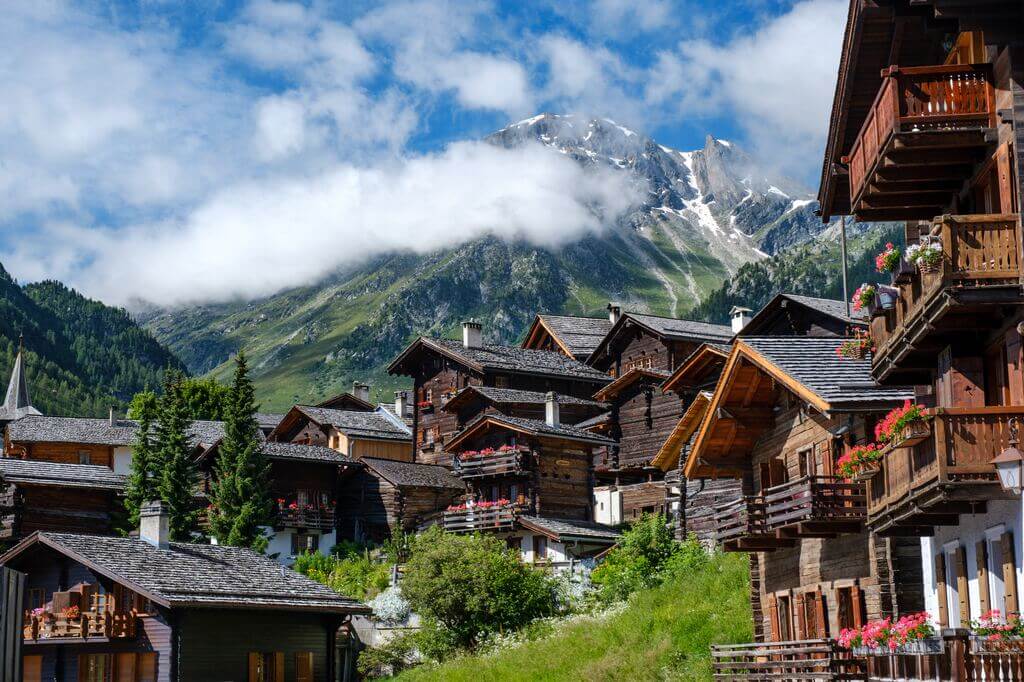How to start an Airbnb in Switzerland?
To list a property on Airbnb in Switzerland, follow these steps, including legal requirements:
- Set up your Airbnb account: Go to Airbnb’s website and create a host account. Provide all necessary information about yourself for verification purposes.
- Register with local authorities: Depending on your location, you might need to register your property as a short-term rental with local authorities. This step is crucial for compliance with local regulations.
- Understand and comply with tax laws: Familiarize yourself with the tax obligations in your canton, including tourist taxes and income tax on rental earnings. Ensure you’re prepared to collect and remit these taxes as required.
- List your property: Enter detailed information about your property, including location, amenities, house rules, and availability. High-quality photos and a clear, attractive description will make your listing more appealing.
- Determine your pricing strategy: Set a competitive price for your rental. Consider factors like location, property size, amenities, and seasonal demand to determine your rates.
- Prepare for guest registration: Depending on your canton, you may need to collect and retain information about your guests. Ensure you have a system in place for this requirement.
- Optimize and manage your listing: Regularly update your listing to reflect any changes. Respond promptly to booking inquiries and reviews to maintain a high rating.
- Stay updated with local regulations: Regulations can change, so it’s important to stay informed about local laws and Airbnb policies to ensure ongoing compliance.
Is Airbnb legal in Switzerland?
Yes, Airbnb is allowed in Switzerland, but it’s governed by national and local regulations. Property owners must adhere to specific rules that vary significantly across different cantons and municipalities. These regulations can include guest registration, data protection, and adherence to housing, zoning, and tax laws. Ensuring compliance with these varying local and national rules is essential for legally operating an Airbnb in Switzerland.
Airbnb rules per Swiss city and region
The regulations for Airbnb hosting in Switzerland vary significantly by region, encompassing guest registration, tourist cards, and specific taxes. Here’s an expanded overview of these rules across various Swiss Cantons and cities:
- Canton of Basel-Landschaft: Along with a Tourist Tax of CHF 3.50 ($3.99) per person per night, guests receive benefits like a guest pass and a mobility ticket for free public transportation. Hosts are responsible for registering to provide these passes and tickets.
- Canton of Basel-Stadt: Guests pay a City Tax of CHF 4 ($4.56) per person per night. Hosts need to provide BaselCards, offering benefits like free public transport and discounts on cultural activities.
- Canton of Fribourg: A Tourist Tax of CHF 1.30 ($1.48) to CHF 3 ($3.42) per person per night applies.
- Canton of Geneva: Implements a Tourist Tax of CHF 3.75 ($4.28) per person per night for stays shorter than 40 days. The Canton of Geneva regulates short-term rentals through specific acts, with possible exemptions for short-term rental activity that do not upset neighborhood balance.
- Canton of Lucerne: Charges Tourist Taxes between CHF 0.50 ($0.57) to CHF 6.50 ($7.41) per person per night.
- Canton of Schaffhausen: A Tourist Tax of CHF 2.50 ($2.85) per person per night is imposed.
- Canton of Vaud: Hosts charge a Tourist Tax of CHF 3 ($3.42) per person per night. Notably, the Canton of Vaud requires hosts to notify local authorities of short-term rentals and keep a guest register with ID copies and stay dates. In areas with housing shortages, a change of use permit is required for rentals over 90 days per year.
- Canton of Zug: Tourist Taxes of CHF 0.90 ($1.03) to CHF 2 ($2.28) per person per night vary by city.
- Canton of Neuchâtel: Airbnb hosts in this Canton must charge guests a tourist tax and provide them with a Neuchâtel Transport Card after paying the tax.
- Canton of Zurich: Implements a City Tax of CHF 3.50 ($3.99) per person per night for stays up to 30 nights. Hosts must report guest stays to the Cantonal Zurich Police.
- Municipality of Klosters-Serneus: The region offers a guest card for discounts and free public transport to visitors staying with registered hosts.
- Canton of Ticino: Hosts must obtain and display a registration number on their listing. Hosts renting out for more than 90 days per year are considered commercial landlords and require a commercial rental permit.
- Davos: Hosts must obtain a registration number from the Davos Destinations Organization and display it in their advertisements. The region also imposes a guest and sports tax during defined summer and winter seasons, and guests receive an Arosa Card for free services.
These regulations highlight the complexity and diversity of Airbnb hosting in Switzerland, emphasizing the importance of understanding and complying with local laws and guest benefits. Hosts must stay updated with their specific cantonal and municipal regulations to ensure a smooth hosting experience.
Is there a tourist tax on Airbnb in Switzerland?
In Switzerland, a tourist tax is commonly levied on Airbnb rentals across various cantons and cities. This tax, often charged per person per night, directly affects guests booking Airbnb listings. Here’s an overview of tourist taxes in some Swiss cantons as applicable to Airbnb stays:
- Canton of Basel-Landschaft: A Tourist Tax of CHF 3.50 ($3.99) per person per night for the first 30 nights.
- Canton of Basel-Stadt: Guests pay a City Tax of CHF 4 ($4.56) per person per night.
- Canton of Fribourg: The Tourist Tax ranges from CHF 1.30 ($1.48) to CHF 3 ($3.42) per person per night for stays shorter than one month.
- Canton of Geneva: A Tourist Tax of CHF 3.75 ($4.28) per person per night for reservations shorter than 40 days.
- Canton of Lucerne: Tourist Taxes vary between CHF 0.50 ($0.57) and CHF 6.50 ($7.41) per person per night.
- Canton of Schaffhausen: Tourist Tax is set at CHF 2.50 ($2.85) per person per night.
- Canton of Vaud: A Tourist Tax of CHF 3 ($3.42) per person per night is imposed.
- Canton of Zug: Tourist Taxes range from CHF 0.90 ($1.03) to CHF 2 ($2.28) per person per night, depending on the city.
- Canton of Zurich: A City Tax of CHF 3.50 ($3.99) per person per night applies for stays of 30 nights or shorter.
These taxes are typically part of the reservation cost and are clearly outlined to guests during the booking process. Hosts are responsible for understanding and adhering to these tax regulations, which are integral to the legal and compliant operation of Airbnb rentals in Switzerland.
Frequently Asked Questions (FAQs)
Is starting an Airbnb in Switzerland profitable?
Starting an Airbnb in Switzerland can be profitable, especially in tourist-favored regions like Zurich, Geneva, and the Swiss Alps. The country’s strong tourism industry, combined with its picturesque landscapes and rich cultural heritage, makes it an attractive location for Airbnb rentals.
Where do I register for Airbnb in Switzerland?
To register for Airbnb in Switzerland, first ensure compliance with local regulations in your canton, such as guest registration and tax obligations. Then, register your property directly on the Airbnb website. Some cantons may require additional registration with local authorities or tourism offices, so checking specific cantonal requirements is essential.
What is the best place to start Airbnb rentals in Switzerland?
The best places to start Airbnb rentals in Switzerland are tourist hotspots and major cities. Locations like Zurich, Geneva, Lucerne, and popular ski resorts in the Alps tend to attract many visitors year-round. Scenic areas like Interlaken or the Lauterbrunnen Valley are also excellent choices due to their appeal to tourists seeking natural beauty and outdoor activities.
Can foreigners list an Airbnb in Switzerland?
Yes, foreigners can list an Airbnb in Switzerland, but they must comply with Swiss laws and regulations regarding property ownership, rental, and operation. This includes adhering to local cantonal and municipal rules, obtaining necessary permits, and ensuring proper guest registration and tax compliance.







2 Responses
Dear Sir / Madam,
Seasons Greetings !!
I am a senior travel consultant & owning a travel company in India and planning to expand our services into Switzerland by taking small country side houses & apartments in city on a long term lease and attached them with AirBnB also booking thru our sources for our owned known clients who are going to visit Swiss from India.
I am also willing to set my office and staff to take care of those leased property and guests including check in / check out procedure, food availability, house keeping, cleanliness and regular maintenance.
Request you to pls advise the procedure for leasing out properties in and around Lucerne (Lucerne & around area is very popular India market, mostly Indian are willing to stay here only) & long term work visa procedure for our self & our Indian staff along with your consultation charges.
Thanking You.
Sincerely,
Sharad Pawar
Hi Sharad! Seasons Greetings! Expanding into Switzerland sounds like a great opportunity. To lease properties around Lucerne, you will need to enter into a long-term lease agreement with property owners, and you may also need to comply with local Airbnb regulations. Regarding work visas, the process for obtaining long-term visas for yourself and your staff involves securing the right permits, which can vary based on the nature of your business.